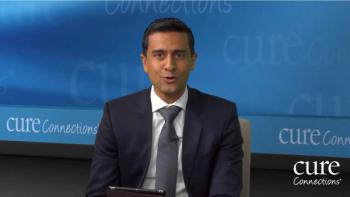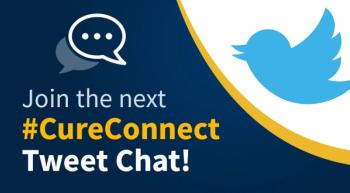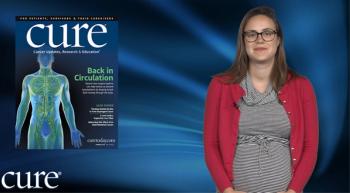
Psychosocial


At her first chemotherapy infusion, one woman met a caring patient who guided her through the treatment experience.

Reading, writing, art, music... CURE recently asked its social media audience to share the creative outlets and activities that have helped them on their cancer journey. Here are some of their responses – in the hopes of helping others find a new hobby of their own.

Readers of CURE share the ways that cancer has changed their lives.

In this episode of the “Cure Talks Cancer” podcast, we spoke with Joan DelFattore about how she overcame the physician bias she encountered during her cancer treatment.

Save the date! We invite you to join CURE for our next monthly #CureConnect Tweet Chat on Thursday, September 26, at 1 p.m. EST, when we plan on discussing living with cancer.

"We hope that this array of articles leaves you feeling informed about changes to your health-care system and some key supportive strategies that can improve your quality of life during treatment."

"Having lived through dangerous hurricanes and cancer treatments, sometimes even simultaneously, I have witnessed firsthand the devastation that is left in the wakes of both of these traumatic events and see many parallels between the two that those who have not experienced cancer might miss."

"It would be hard to be a family member of someone with cancer without worrying, but what does it mean to worry, and does our worrying mean we are coping?"

Cancer brain fog, or chemo brain, interferes with daily life for many patients. Help can take the form of mental or physical exercise.

Cancer survivors become experts at counting their blessings!

"It seems natural to connect with one person when receiving care from a team of people. For me, that person was LeSandra Bertch."

Sometimes it’s hard to know what to say, especially when cancer is involved.

Here’s a sneak peek at what’s inside our Summer 2019 issue.


This one-stop shop offers patients pain-management strategies, emotional support, nutritional guidance and more.

From the beginning of a cancer diagnosis through recovery, one onoclogy nurse showed the impact one person can make.

We asked our social media audience: How do you overcome the fear that comes with cancer? Here are some of their inspiring, uplifting and surprising responses.

Given the hardships cancer can have on an individual and their loved ones, support groups can be a useful tool in navigating the new normal.

A survivor makes some suggestions on how to approach people battling a loss or serious illness.

A survivor discusses the decision to either accept each stage of the cancer journey or fight it with gusto.

Nominating Kelley is my way of thanking her from the bottom of my heart for all she did and continues to do, not only for me but for so many other cancer patients and families.

Here are four keys to surviving the ordeal – especially for partners and caregivers.

Longer-term cancer survivor shares strategies to cope with the appointments, tests, and results that always seem to be looming on the horizon.

“It takes a special kind of person to be an oncology nurse,” wrote Donna Hornbuckle in her nomination essay of Julie Burris, RN for CURE®’s 2019 Extraordinary Healer® Award. "She gives the gift of time to every patient."

As a cancer survivor, there are times when you're consumed by guilt. Why did you make it to remission when others have lost their cancer battle?

After a cancer diagnosis, a person's identity may change. Often, one may choose to identify with familiar cancer terminology such as "patient," "survivor," or even "victim." These identities can form a lasting positive or negative impact on a person's life.

Those of us who live with cancer don't just hope for the good reports, clear scans or positive lab results.

Is it possible to be addicted to the anxiety cancer brings? I have been living with that addiction for years but have three ways to combat an anxiety addiction.